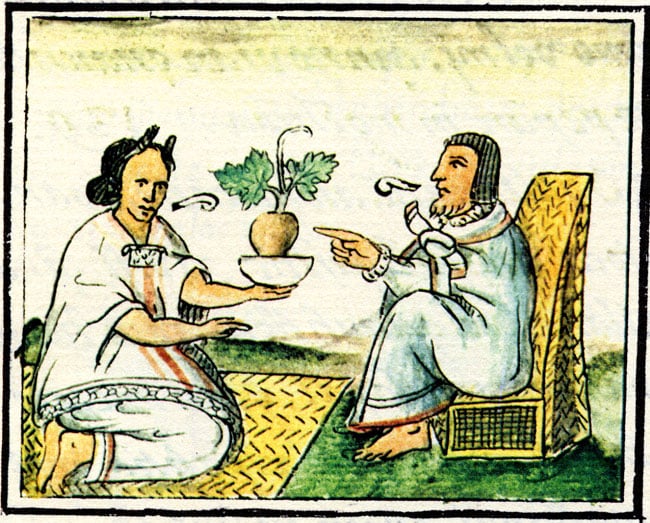“As healthy as a horse.”
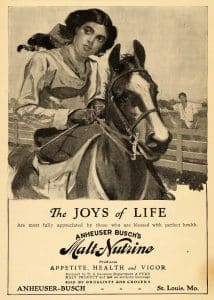 You’re heard this, of course. From all accounts, the term originated in the 19th century. Then (as now), horses were known for their vitality and endurance, as well as their strength. They were symbols of good health. Someone that was, “As healthy as a horse,” was in excellent physical health. It was a positive term. Terms such as, “Eat like a horse,” or, “Strong as a horse,” came along about the same time.
You’re heard this, of course. From all accounts, the term originated in the 19th century. Then (as now), horses were known for their vitality and endurance, as well as their strength. They were symbols of good health. Someone that was, “As healthy as a horse,” was in excellent physical health. It was a positive term. Terms such as, “Eat like a horse,” or, “Strong as a horse,” came along about the same time.
Health, it seems, was something that your horse mostly had.
And then something happened. In 1979, Dan Rather, the American TV News Anchor was featured in a new story, where he said, “Wellness – there’s a word you don’t hear every day.” Now, it seems like not a day goes by when you don’t hear the word “wellness” thrown around in the horse world. There are seemingly endless “wellness” supplements. Your horse can have wellness exams and participate in wellness health programs. Don’t forget to detox.
Healthy seems now to have been long-forgotten. You horse must now also be well.
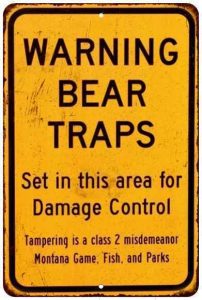 In the human world, the pursuit of “wellness” is immensely profitable. The human wellness industry – covering everything from goods to travel, from psychology to exercise (and more) – was valued at $5.6 trillion dollars in 2023, over three times larger than what the world spent on pharmaceuticals, and larger than the Gross Domestic Product of Germany (CLICK HERE to see the reference). I’m not aware of any monetary figures for the horse world, but given all of the ads, it must surely be worth a bunch.
In the human world, the pursuit of “wellness” is immensely profitable. The human wellness industry – covering everything from goods to travel, from psychology to exercise (and more) – was valued at $5.6 trillion dollars in 2023, over three times larger than what the world spent on pharmaceuticals, and larger than the Gross Domestic Product of Germany (CLICK HERE to see the reference). I’m not aware of any monetary figures for the horse world, but given all of the ads, it must surely be worth a bunch.
Still, with all the new emphasis on wellness for your horse, I think it’s worth asking a couple of questions. Are you feeling good about your horse’s health? Is he well?
The whole idea of wellness in the horse world is a bit of a trap. Apparently, just because your horse isn’t sick – even if he seems healthy – he could still be unwell. Sadly, the pursuit of “wellness,” instead of health usually means that, in order to perpetuate the pursuit of wellness someone – usually someone who wants to sell you something – has to constantly come up with reasons for people to be dissatisfied with or worried about their horse’s health, or at least has to raise concerns about problems that might be lurking out in the medical woods.
 While it’s highly unlikely that strict attention to “wellness” products and services will make your horse feel any better, it certainly can make horse owners feel worse, and certainly poorer. That is, rather than enjoying their horse, people who are consumed with worry about this supplement, that particular bit of “imbalance,” or the proper amount of “support” get to work a lot harder than they need too, spend a lot more than they need to, and enjoy the experience of taking care of horses a lot less. I’ve even seen some people who start punishing themselves (and others) if they miss (or can’t afford) a scoop of joint protector or immune supporter. Such folk become terrified of unknown toxins, anxious about impending “deficiencies,” and resort to doing all sorts of things, “just in case.”
While it’s highly unlikely that strict attention to “wellness” products and services will make your horse feel any better, it certainly can make horse owners feel worse, and certainly poorer. That is, rather than enjoying their horse, people who are consumed with worry about this supplement, that particular bit of “imbalance,” or the proper amount of “support” get to work a lot harder than they need too, spend a lot more than they need to, and enjoy the experience of taking care of horses a lot less. I’ve even seen some people who start punishing themselves (and others) if they miss (or can’t afford) a scoop of joint protector or immune supporter. Such folk become terrified of unknown toxins, anxious about impending “deficiencies,” and resort to doing all sorts of things, “just in case.”
The problems with too much focus on “wellness” are not just limited to those marketing wellness, either. It can infect a whole barn. Some devotees of equine wellness seem to develop a certain paranoia that extends not only to their own horse, but also to everyone else’s. These folks sometimes turn from horse health experts, hypervigilant about their horse’s own health, into barn fascists, who expect everyone to follow their direction as to “proper” care.
 If you worry too much about your horse’s wellness, you’ll probably become a bit unwell, yourself. “Wellness” starts to become work, and expensive work, at that. I once visited a client who spent 4 hours, once a week, measuring about 50 various supplements for her two horses. A few grams of this. A touch of that. She was frantic. Her horses were fine, but she seemed unwell.
If you worry too much about your horse’s wellness, you’ll probably become a bit unwell, yourself. “Wellness” starts to become work, and expensive work, at that. I once visited a client who spent 4 hours, once a week, measuring about 50 various supplements for her two horses. A few grams of this. A touch of that. She was frantic. Her horses were fine, but she seemed unwell.
“Wellness” seems to perpetuate fear and anxiety among some horse owners. In fact, that seems to be exactly what the wellness industry is hoping for. The wellness industry has a fast and loose approach to science, for example, making claims that “natural” is best, or that all chemicals are bad, or that your horse might be missing “something.” There a certain appeal to this, for example, even if “natural” is not any better, it certainly sounds like it should be. Still, the sad facts are that horse owners are easily persuaded by attractively packaged misinformation that looks like science, and that marketers may be less interested in helping horses than they are in selling products.
For some, “wellness” for horses (and some horse owners) has become something of a religion: almost a cult. For some, horse ownership seems to be a huge, empty space where horse owners are seeking safety and security for their horses. Into this space, the gurus of equine wellness have stepped in, dressing up their magical thinking with the window-dressing of science, marketing “nature” and prevention to a group of people who just want their horses to be OK. The religion has created a vast lore of guilt-saturated recommendations about what a horse should eat and wear in order to be the best it can be. The horse, meanwhile, would probably be happier with less attention to products and a lot more attention to, well, attention.

If you take all of the wellness assertions and fads at face value, you’ll find that your horse can’t eat any hay (too much protein, too “rich,” might cause colic, etc.), should never have a bite of any grain, can’t possibly wear shoes (or, alternatively, should never be without shoes), has to have his teeth filed at least twice a year, needs adjusting, massaging, magnetizing, blanketing, lasering, light scanning, body working, regular needling, and supplements for his ulcers, joints, hair, immune system, hooves, and goodness knows what else. Oh, and don’t forget he might be getting too much iron. Under such circumstances, good health for your horse always seems to converge into one end point: buy more stuff. It seems that many horse owners have a huge hole of unaddressed needs; the horse industry is all too eager to fill it.
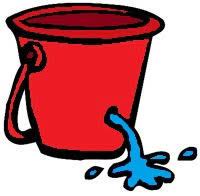 There’s still more. If you want to believe the ads, it seems that the ”fault,” as it were, when it comes to a purported lack of horse health, always seems to fall squarely on the horse owner, and their reluctance to go the extra mile for their horse’s health. If a horse gets sick, suffers and injury, or develops some condition associated with age, the message from the “wellness” industry is that the horse owner did something wrong, or at least failed to do something important. The horse always seems to be lacking something and whatever new need has been manufactured, whatever new disease has been discovered, there’s always some new product or new enlightened expert who is ready to sell you something to show you the way out. If something happens to your horse, you probably deserved it. All you needed to do was spend a bit more money.
There’s still more. If you want to believe the ads, it seems that the ”fault,” as it were, when it comes to a purported lack of horse health, always seems to fall squarely on the horse owner, and their reluctance to go the extra mile for their horse’s health. If a horse gets sick, suffers and injury, or develops some condition associated with age, the message from the “wellness” industry is that the horse owner did something wrong, or at least failed to do something important. The horse always seems to be lacking something and whatever new need has been manufactured, whatever new disease has been discovered, there’s always some new product or new enlightened expert who is ready to sell you something to show you the way out. If something happens to your horse, you probably deserved it. All you needed to do was spend a bit more money.
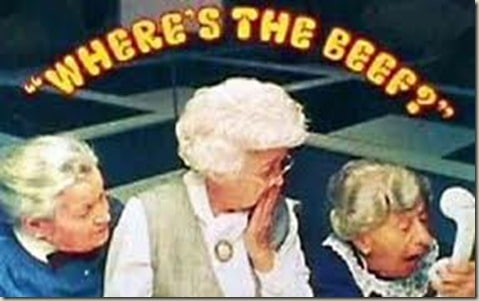 To be sure, there do seem to be a number of people that are put off by the endless marketing of wellness (some of whom may even be following this page). I’ve heard that some of those people may ask for good clinical evidence, instead of falling for earnest (and often paid) endorsements, and I say, “Good for them!” Honestly, that’s what everyone should be doing. Still, the stream of unproven and even disproven information is seemingly endless, and there’s constant pressure on horse owners to succumb to products that, in some cases, are rather clearly scams.
To be sure, there do seem to be a number of people that are put off by the endless marketing of wellness (some of whom may even be following this page). I’ve heard that some of those people may ask for good clinical evidence, instead of falling for earnest (and often paid) endorsements, and I say, “Good for them!” Honestly, that’s what everyone should be doing. Still, the stream of unproven and even disproven information is seemingly endless, and there’s constant pressure on horse owners to succumb to products that, in some cases, are rather clearly scams.
But there’s a hidden, underlying motivation, as well. Hidden beneath all of the attractive packages and eager, earnest marketing, “wellness” products and services promise horse owners something much stronger and more seductive than simply good health. It promises horse owners something that they desperately want, even if they really can’t have it: control. The medical world is unpredictable, there’s lots that even experts don’t know, and, well, it can be a little scary. “Wellness” sells the idea that if only the horse owner would provide – something – the horse wouldn’t get sick, the hooves wouldn’t flake, etc. The illusion of control sells.
 What may have started as a general effort to increase health and longevity in horses, and to thereby reduce stress in horse owners has, in many cases, become a cure that is worse than the disease. Instead of horse owners simply being happy with a welcome nicker and a good brushing, they are now besieged by an army of trainers, body workers, dentists, sports medicine “specialists,” etc., etc., selling products and services of every conceivable nature and telling them about everything that their horse needs and, sadly, doesn’t have. However, in the “wellness” world, there’s very little reliable evidence and a whole lot of demonstrable nonsense. Sadly, if people spend all of their time buying, measuring, and fretting, they may not actually have the time, energy, or will to actually enjoy the glory of the horse:human relationship. As such, horse ownership can become a never-ending episode of “Fear Factor.”
What may have started as a general effort to increase health and longevity in horses, and to thereby reduce stress in horse owners has, in many cases, become a cure that is worse than the disease. Instead of horse owners simply being happy with a welcome nicker and a good brushing, they are now besieged by an army of trainers, body workers, dentists, sports medicine “specialists,” etc., etc., selling products and services of every conceivable nature and telling them about everything that their horse needs and, sadly, doesn’t have. However, in the “wellness” world, there’s very little reliable evidence and a whole lot of demonstrable nonsense. Sadly, if people spend all of their time buying, measuring, and fretting, they may not actually have the time, energy, or will to actually enjoy the glory of the horse:human relationship. As such, horse ownership can become a never-ending episode of “Fear Factor.”
In my opinion, the horse “wellness” industry is not much more than a relentless marketing machine whose message to horse owners is that their horse is never fit enough or healthy enough. The horse seems to be allegedly walking along the edge of an unhealthy cliff, ready to fall off at a moment’s notice. The message is constant and soul-sucking. Horse owners are made to feel inadequate, no matter how much they spend on their horses.
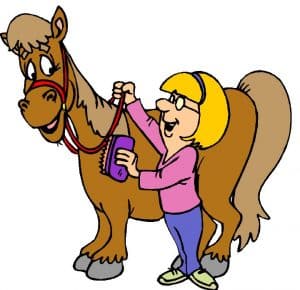 It shouldn’t be that way. The shameful and constant harping about horse “wellness” is a pox on the horse industry. Horse owners should spend a lot more time paying attention to the relatively few things that a horse really needs, and a lot less time paying attention to things that marketers tell them that the horse allegedly doesn’t have. It turns out that you are going to have to spend some money on your horse, but how about spending money on a few things that are really important? I wrote about that, too (CLICK HERE to read about the five most important things should spend your money on for your horse). If horse people would focus on a relatively few things needed to make a horse healthy, have more fun, and would worry less about whether their horse is “well,” maybe then, the horse industry might start to get a little more “well,” too.
It shouldn’t be that way. The shameful and constant harping about horse “wellness” is a pox on the horse industry. Horse owners should spend a lot more time paying attention to the relatively few things that a horse really needs, and a lot less time paying attention to things that marketers tell them that the horse allegedly doesn’t have. It turns out that you are going to have to spend some money on your horse, but how about spending money on a few things that are really important? I wrote about that, too (CLICK HERE to read about the five most important things should spend your money on for your horse). If horse people would focus on a relatively few things needed to make a horse healthy, have more fun, and would worry less about whether their horse is “well,” maybe then, the horse industry might start to get a little more “well,” too.







